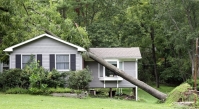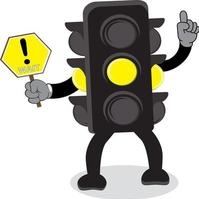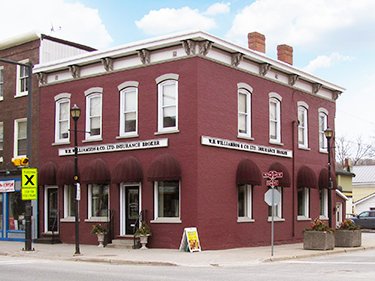Barbecue Season Is In Full Swing: Don’t Go Up In Flames
The joys of outdoor cooking also bring fire and associated risks. Here are some safety reminders for gas and propane barbecues to protect you and your property from harm or damage.
• Never operate a barbecue in an enclosed space, close to a structure, or near combustibles. Have a one metre radius around it free of obstructions.
• Keep your barbecue in tip top shape. Check for hose breakage, valve leaks, and other parts before securing the tank well and turning on the gas.
• When in use, never leave the grill unattended, and when finished turn the tank off before the burners so the remaining gas in the lines can burn off. This can help prevent a flash the next time the BBQ is in use.
• Make sure your fire extinguisher is easily accessible and in good working order.
Additional Tips
• Propane companies use an additive to create an unpleasant odour like rotten eggs to make a propane leak easier to detect, so you can shut off supply immediately, stop using the grill, and clear the area.
• Although the risk of carbon monoxide is low when using a BBQ outdoors, it is not entirely eliminated. Learn to recognize the signs of CO2 poisoning and take appropriate action.
• Store propane tanks in an upright position, in a spot where they are unlikely to be knocked or bumped to prevent any safety risk.
|
|
| What if My Neighbour's Tree Falls on my Property? | |
|
What if My Neighbour’s Tree Falls on my Property?
Prince Edward County escaped a direct hit from the severe thunder and windstorm which recently swept through the region. It caused widespread power outages as well as property damage from falling trees and other objects. Can you hold a neighbour responsible for damage occurring to your property if the tree was located on their property? The neighbour could potentially be held liable if the tree was previously identified as a known hazard, the owner(s) had legally been put on notice to take action, and had failed to do so. Proper documentation regarding the hazard is essential for liability to be triggered. Often times, in a severe windstorm, even totally healthy trees can be brought down, so liability would not come into play. If the neighbour feels some responsibility, there is a coverage in Section 2 of the Homeowners Policy called Voluntary Damage To Property, which allows the homeowner to compensate the third party up to a modest, limited amount without accepting liability. This is often referred to as a “goodwill” or “good neighbour” coverage. If the tree fell on a vehicle you own and the vehicle carries comprehensive coverage, the damage would be covered subject to the deductible. If the fallen tree caused damage to your dwelling, an outbuilding, or any other permanently installed outdoor structure, such as a fence or swimming pool, your own homeowners policy would respond for the necessary repairs to restore the building/structure, once again, subject to the policy deductible. Insurance will cover the removal of the tree from the damaged building/structure, but not for its removal from the property. Contact your broker for advice and clarification concerning any of the above information.
|

What if My Neighbour’s Tree Falls on my Property?
Prince Edward County escaped a direct hit from the severe thunder and windstorm which recently swept through the region. It caused widespread power outages as well as property damage from falling trees and other objects. Can you hold a neighbour responsible for damage occurring to your property if the tree was located on their property?
The neighbour could potentially be held liable if the tree was previously identified as a known hazard, the owner(s) had legally been put on notice to take action, and had failed to do so. Proper documentation regarding the hazard is essential for liability to be triggered.
Often times, in a severe windstorm, even totally healthy trees can be brought down, so liability would not come into play. If the neighbour feels some responsibility, there is a coverage in Section 2 of the Homeowners Policy called Voluntary Damage To Property, which allows the homeowner to compensate the third party up to a modest, limited amount without accepting liability. This is often referred to as a “goodwill” or “good neighbour” coverage.
If the tree fell on a vehicle you own and the vehicle carries comprehensive coverage, the damage would be covered subject to the deductible.
If the fallen tree caused damage to your dwelling, an outbuilding, or any other permanently installed outdoor structure, such as a fence or swimming pool, your own homeowners policy would respond for the necessary repairs to restore the building/structure, once again, subject to the policy deductible. Insurance will cover the removal of the tree from the damaged building/structure, but not for its removal from the property.
Contact your broker for advice and clarification concerning any of the above information.
 Who’s At Fault in Caution Light Crashes?
Canada’s dreaded amber light is the source of numerous intersection crashes, resulting in untold insurance claims. Because of this, be especially vigilant when turning left against yellow caution lights at intersections. Although the outcome of a given case will be determined based upon the facts that are unique to that case, a driver making a left-hand turn will generally not be able to rely on an assumption that the other driver will stop for the yellow light.
Fault for the resulting collision will likely be found in such cases on the part of the left-turning driver.
Drivers have a legal duty to stop for a yellow light, but only if they can do so safely. Otherwise, they are allowed to proceed through the intersection with caution.
The Highway Traffic Act states that a left-turning driver must ensure the turn can be safely made, so it is the responsibility of that driver to make sure it is safe to proceed through the intersection.
Some drivers attempting to make a left turn on a yellow light may assume that an approaching vehicle will stop; however, this assumption does not lessen or negate liability for left-hand turning drivers in the event of a collision.
Who’s At Fault in Caution Light Crashes?
Canada’s dreaded amber light is the source of numerous intersection crashes, resulting in untold insurance claims. Because of this, be especially vigilant when turning left against yellow caution lights at intersections. Although the outcome of a given case will be determined based upon the facts that are unique to that case, a driver making a left-hand turn will generally not be able to rely on an assumption that the other driver will stop for the yellow light.
Fault for the resulting collision will likely be found in such cases on the part of the left-turning driver.
Drivers have a legal duty to stop for a yellow light, but only if they can do so safely. Otherwise, they are allowed to proceed through the intersection with caution.
The Highway Traffic Act states that a left-turning driver must ensure the turn can be safely made, so it is the responsibility of that driver to make sure it is safe to proceed through the intersection.
Some drivers attempting to make a left turn on a yellow light may assume that an approaching vehicle will stop; however, this assumption does not lessen or negate liability for left-hand turning drivers in the event of a collision.




 W.H. Williamson & Co. Limited
W.H. Williamson & Co. Limited




